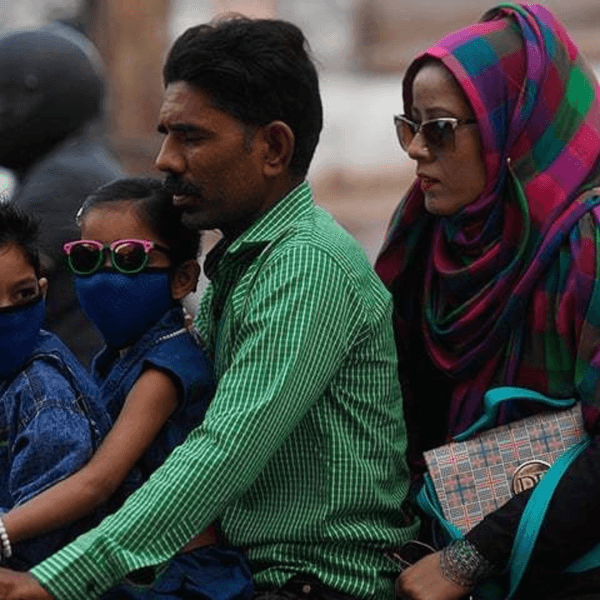Pakistan's Sindh leads a bold push for male sterilization and challenges health myths
Sindh health department has launched a vasectomy campaign, with over 3,000 men undergoing the procedure this year
Shumaila Khan
Chief Correspondent
Shumaila Khan, a multimedia journalist and Chevening SAJP fellow with 17+ years of experience, is known for her acclaimed work with BBC Urdu, BBC Indian Languages, DW English, Dainik Bhaskar, UNICEF, and Internews.
In Pakistan’s Sindh province, where discussions about birth control traditionally fall on women, a bold new initiative is challenging both social norms and health misconceptions.
The provincial health department has launched an unconventional campaign to promote male sterilization, or vasectomy, as part of a broader strategy to manage rapid population growth and improve reproductive health.
Since the program began, more than 3,000 men have undergone vasectomies this year alone - a notable rise from just over 2,000 last year. In October, 400 procedures were performed. “For a long time, vasectomy was almost unheard of here. Few men came forward, and even fewer doctors were trained to perform it,” said Sindh Health Minister Dr. Azra Fazal Pechuho.
“Now we’re training more physicians and posting them in every district so that the service is accessible and safe.”
Counselling and shifting gender norms
The initiative marks a cultural shift in a society where reproductive decisions are largely seen as a woman’s responsibility. Dr. Pechuho acknowledges the stigma men face, including misconceptions that sterilization weakens the body or affects masculinity.
“There used to be a lot of hesitation,” she said. “But awareness has grown. Many men now realize that repeated pregnancies damage women’s health. They want to share that burden - that’s a kind of gender sensitivity we didn’t see before.”
To encourage acceptance, the Health Department has established ‘Otaq systems’ in major hospitals - spaces where men accompanying pregnant wives receive counselling on family planning. Men who have already undergone vasectomies are invited to share their experiences, helping to dispel myths.
Focus on willing participants
The campaign targets only men who volunteer and have already completed their families. Most participants come from low- and middle-income backgrounds, where economic pressures make raising large families difficult. “Children are blessings, but responsible parenting also matters,” Dr. Pechuho said.
While Sindh experiments with progressive family planning methods, it continues to face another public health challenge: polio refusals. In the most recent campaign, around 120,000 families refused vaccination, nearly 100,000 of them in Karachi.
“We managed to convert 90,000 refusals through community outreach, local councilors, and parliamentarians,” said Dr. Pechuho. “But around 32,000 refusals still persist in Karachi.” She added that stricter measures, such as linking vaccinations to SIM cards or passports, may be considered if necessary.
The HPV vaccination drive and misinformation
Dr. Pechuho also addressed the government’s HPV vaccination campaign, which aims to immunize 4.2 million girls aged 9 to 14 against cervical cancer. Despite online misinformation, the program achieved roughly 60 percent coverage.
“Social media influencers spread false claims linking the vaccine to infertility,” she said. “Ironically, many doctors had vaccinated their own daughters years ago. Those women are now married with children - the best proof we can offer.”
The Health Department has partnered with media outlets and medical associations to counter false narratives. Vaccination uptake has been stronger in rural areas than in urban centers such as Karachi and Hyderabad, where online disinformation created more hesitation.
Countering online disinformation
To tackle harmful misinformation, the Sindh Health Department is collaborating with Pakistan’s cybercrime authorities. “When someone spreads lies that lead to illness or death, it’s not just ignorance, it’s a crime,” Dr. Pechuho said. “Misinformation about vaccines can kill. We consider it a cyber offence, even a form of terrorism, because it plays with people’s lives.”
The real test will be sustainability and scale. Will vasectomy numbers rise further? Will HPV vaccination reach the targeted millions? Will polio refusals shrink quickly enough to prevent outbreaks? Sindh’s health department is betting on a combination of training, counselling, community mobilization, and policy enforcement.
If successful, the initiative could reshape perceptions in Pakistan’s conservative social context - showing that men can actively participate in contraception and that vaccines can succeed even amid controversy when health policy aligns with cultural strategy.








Comments
See what people are discussing